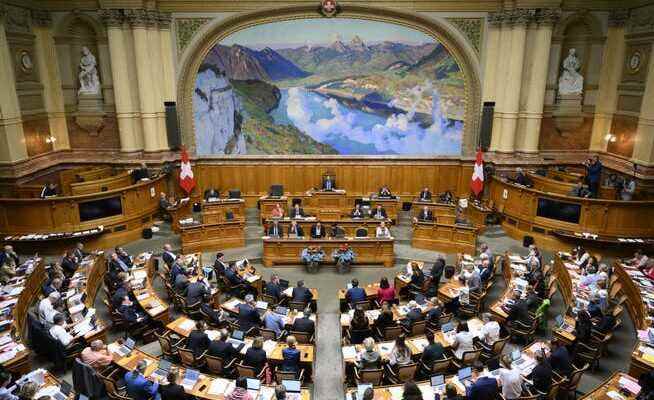The latest initiatives in the Federal Parliament to “compensate” for the rise in inflation are unnecessary and wasteful. The fact that they still have good chances is a strong indication of the rampant fully comprehensive mentality in the country.
The National Council is debating on June 9, 2022 in Bern.
Time for some plain language: If oil, food or other imported goods become more expensive, the Santa Claus will not bear the additional costs. Then nationals have to shoulder the additional burden. The rhetoric that has been ramped up in recent months on the federal political stage in Berne about “relief measures for citizens and companies” because of the rise in the price of imported goods is both a cheap election campaign and a fraudulent label.
It’s not about relief, but about a classic distribution struggle: If certain groups in Germany are “relieved”, this means additional burdens for other groups. Anyone who calls for more subsidies for certain groups is not “generous”, as is often suggested: handing out someone else’s money is not a special virtue, and someone else always has to foot the bill. However, since demands for subsidies for certain groups as “compensation” for rising inflation are not clear as to who will have to bear the costs and when, such demands appear politically promising.
Fortunately, there is the federal government’s debt brake. At least in a regular budget, this ensures that expenditure does not exceed income in the long term. This forces Parliament to set priorities and thus to deal with conflicting goals. The pandemic acted like a drug for federal politicians: Thanks to the magic drug, they were able to throw “extraordinary expenses” around, detached from the normal rules of the debt brake, with billions in foreign taxes and thus effectively implement state pandemic insurance.
The “extraordinary situation” of the pandemic is over, but now an increase in inflation from 0 to 2 to 3 percent seems to be enough to arouse the desire of politicians from left to right for state inflation insurance. The purchasing power of wages and AHV pensions will also be higher at the end of this year than ten years ago, but perhaps slightly lower than a year earlier. The normal adjustment mechanisms suggest that this dip will be overcompensated for in the medium term. The fact that even in a historically anything but exceptional inflation situation, demands for “compensation” have good political chances is an indication of the decadence of the affluent society in Switzerland.
If you absolutely want to do something, it should at least be targeted with a view to the poorest. The bourgeois moves in March to lower the price of petrol and heating oil were the opposite of targeted and would also be exactly the wrong thing to do if they covered up the market price signals from an economic point of view and from the point of view of climate policy.
The proposal for an extraordinary pension increase now submitted by the SP and the center is not quite as bad, but it is also a classic watering can: the majority of pensioners are in good financial shape, are already heavily subsidized at the expense of the younger ones and do not need any additional subsidies. Another push – lowering health insurance premiums – is more targeted, but still far too broad. The most targeted would be a more rapid adjustment of basic needs to inflation in supplementary benefits and social assistance.
